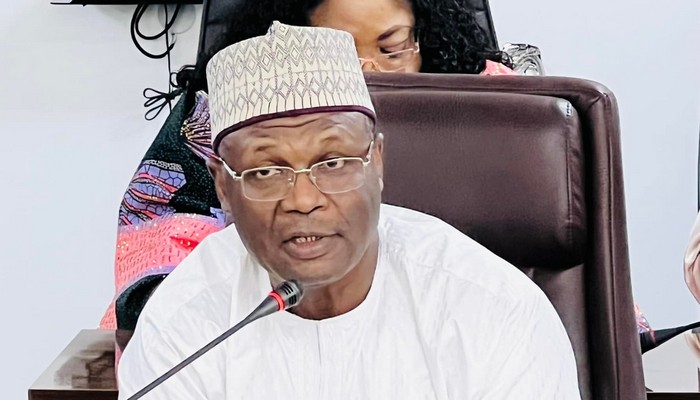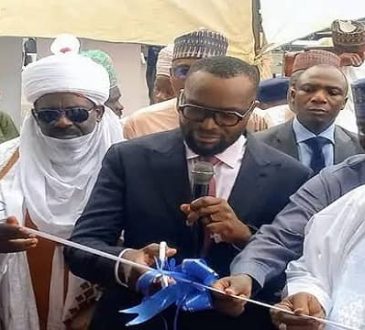
Nigerians should unite behind President Bola Tinubu as military operations against terrorism, banditry, and kidnapping have reached an advanced stage, according to Dr. Ibrahim Abubakar Kana, Permanent Secretary of the Ministry of Defence.
Dr. Kana noted that President Tinubu has successfully unified Nigeria’s security architecture and resources to tackle the nation’s security challenges.
Speaking at the Stakeholders Engagement organized by Nigeria Communications Satellite Ltd. (NigComSat) in Abuja, he praised the military and security agencies for their efforts in safeguarding Nigeria’s territorial integrity and restoring lasting peace.
Dr Kana said the ongoing military operations against Boko Haram terrorists, bandits, and kidnappers especially in the Northeast and Northwest have reached an advanced stage with the deployment of sophisticated satellite assets, military equipment, and weapons that would soon finish up the activities of non-state actors and criminals holding the country hostage.
He added that the administration of President Tinubu needs the support of Nigerians to boost the morale of troops and provide further intelligence on the activities of criminals in the local environments.
Dr Kana said for instance, satellite assets are being deployed to provide geospatial information on the location of troops, the terrain and the positions of the enemies and their hideouts. He said such capability and facilities would substantially reduce casualties on the sides of the Nigerian troops.
The Stakeholders Engagement was attended by top military Officers from the Defence Headquarters (DHQ), the Nigeria Army, the Nigeria Air Force, NAF, the Nigeria Navy and the Nigeria Space Defence Administration, amongst others.
Dr Kana said: “Right now, we have moved from normal military operations to advanced military operations. We now use drones. We need a satellite to do that. Our troops have to identify where our enemies are. As it is now, without satellites, we cannot operate our drones.
“There will be pollution, or rather, what you call accidents, you know, among the drones in the space. Therefore, we need satellites to do that operation.”
He emphasised that President Tinubu has been able to bring all stakeholders together under a Council, stressing that the capability of the stakeholders and the commitments/support of Nigerians would soon put an end to the security challenges.
“I want to use the opportunity to thank His Excellency, Mr President, for bringing us together and making sure that we all work together and providing all the requirements, particularly launching of more satellites in space”, the Permanent Secretary said.
Speaking on the commitments of the military, Dr Kana said: “I think the least we can do is to say thank you to the military for working day and night. If you come out in the night around the streets of the whole country, you see the military working. So the military is working.
“The military is doing very well. But we also need the civilian population, not only the military, to help in addressing the security challenges of our country. It’s not purely a military affair. It is also a social affair. You and I have a role to play. “
The Managing Director and Chief Executive Officer of NigComSat, Mrs Jane Egerton-Idehen said the Nigeria Satellite Week was being organised to bring all stakeholders together to explore the huge socio-economic potentials in the satellite industry.
Egerton-Idehen said within the past year, several initiatives and programmes have been launched by NigComSat to enable improvement in its services and earn more revenue for the government.
Egerton-Idehen said: “So our target in terms of penetration levels in conjunction with other agencies is 75 percent. Therefore, we want to move the nation’s broadband penetration from where it used to be about 45 to 75 percent
“We want to dominate this market. This is how we set this market. We see a future where 70% of our revenue will come from the Nigerian market. We see a future where in the satellite sector.
“Because right now there are so many private sector operators here. But the truth is a lot of people they serve are government agencies.”






